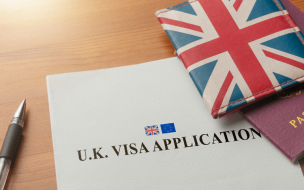Work visa opportunities vary by country; many EU countries have little or no requirements for EU citizens, while the US requires that a company sponsor your H-1B visa.
The process of getting a work visa is rarely stress-free – even for MBA and Master’s graduates – but there are a few countries that make it easier.
Here’s six of the easiest countries to get a work visa. Take a look and you might just consider a new destination for your business school degree.
6. New Zealand
New Zealand has always been a popular choice for those looking to study among stunning landscapes, and a relatively stress-free visa system makes New Zealand one of the easiest countries to get a work visa.
Its post-study work visa is for those who have completed a relevant degree in the country, and is granted for a period of up to three years—perfect for searching for that first job after your MBA or business master’s.
At the end of your post-study work visa, there are plenty of options to stay in New Zealand if you have the right skills and experience. For example, the Skilled Migrant Visa grants permanent residence on the basis of skills shortages in the country. (It is important to note that after October 9 2023, New Zealand is introducing a new points system with a requirement for applicants to have a skilled job offer of at least 30 hours per week.)
Are you a budding entrepreneur? Then the Entrepreneurship Work Visa offers you the chance to build your business in the country for a period of up to three years. You must have a detailed business plan, NZ$100k to invest (US$62k), and be able to meet a minimum of 120 points on the visa scale.
5. Canada
Although Canada shares a lengthy border with the US, its flexible immigration system couldn’t be more at odds with that of its neighbor.
While the US restricts visas, Canada remains one of the easiest countries to get a Post-Graduation Work Permit (PGWP).
READ: 5 Of The Best Masters In Finance In Canada
In most cases, the PGWP allows students to remain in the country for the same duration as their study period. (If you have completed up to 50% of your studies outside Canada, this will be deducted from the length of time you are allowed to stay.) Students must have graduated from a program of at least eight-months to apply. Special exceptions can be made for graduates from a two-year MBA program, who can be granted a PGWP of up to three years.
You might also apply for permanent residence (and thus the right to live and work in Canada) under the Federal Skilled Worker or Canadian Experience Class programs. Both schemes grant permits if you have one-year of full-time work experience (defined as 30 hours per week for 12 months) in managerial, professional, or technical jobs. Applicants for the Canadian Experience Class program must have completed their work experience in Canada.
Top business schools in Canada include Ivey Business School of the University of Western Ontario, John Molson School of Business at Concordia University, Desautels Faculty of Management at McGill University, and UBC Sauder School of Business.
4. Singapore
Singapore is already a popular choice for MBAs, thanks to top-ranked schools like NUS Business School and Singapore Management University, and links to businesses across Asia.
Here, if you’ve graduated from a higher education program in the country, you’re eligible to apply for a Short-Term Visit Pass and a Short-Term Visit Pass Extension which allows you to stay in Singapore for an extra 30-90 days. After gaining this breathing room, an application for a Long-Term Visit Pass grants a stay of up to two years in Singapore.
READ: 5 Hottest Jobs For Business School Graduates In Singapore
©lena_serditova
Once you’ve found your dream job in the city-state, there are a couple of work visas available to you. The Employment Pass is designed for professionals, managers, and executives earning at least S$5000 (US$3,700) a month and is sponsored by your employer for up to two years. After September 1st 2023, you will also need to pass a Complementary Assessment Framework in order to be eligible.
If you classify as a ‘mid-skilled’ worker, you will qualify for the S Pass which offers a stay of up to two years for graduates earning at least S$3000 (US$2,300) a month. (After September 1st, this will increase to S$3,150).
If you plan on launching your own business in Singapore, you can also apply for the EntrePass. To be eligible you must have launched or plan to launch a private limited company that is registered with the authorities in Singapore. Your company must be venture backed or possess innovative technologies to get accepted.
3. Australia
Australia is one of the easiest countries to get a work visa, offering two schemes for international graduates: the Graduate Work stream and Post-Study Work stream.
The Graduate Work stream allows you to stay and work in Australia if you hold a qualification in a sector where there is a skills shortage in the country. For Hong Kong or British National overseas passport holders, the stream allows you to stay for up to five years, but for applicants from other countries it's an 18-month stay.
The Post-Study Work stream has fewer requirements, allowing a stay between two and four years depending on the degree you studied. Both visas cost AU$1,895 (around US$1290) and are available to students who hold a degree from a course provider that's registered in the Commonwealth Register of Institutions and Courses for Overseas Students (CRICOS).
READ: 9 Of The Best Business Schools In Australia
©MBS Facebook
Alternatively, you might also apply for the Global Talent Visa Program (GTV), a specific work and residence visa for highly-skilled workers who are skilled across 10 sectors. These include AgTech, FinTech, MedTech, Cyber Security, Data Science, and Space and Advanced Manufacturing.
Candidates need to be endorsed by an Australian national who has a global reputation in the same field, or a globally recognized organization, and must reach a salary of AU$162,000 (US$110,400) to apply. There are 5,000 places available.
Top Australian business schools include Melbourne Business School and the Australian Graduate School of Management (AGSM) at the University of New South Wales Business School in Sydney.
2. Germany
As part of the European Union, Germany offers a range of lucrative visa options for anyone with strong skills and a good educational background.
If you're a non-EU citizen, immediately after finishing your last exam you can apply for an 18-month extended residency permit allowing you to stay and work in the country. To be eligible you must have proof from your university that you have completed a degree.
Successful applicants are permitted to stay in Germany while applying for a residence permit, such as the EU Blue Card Scheme. This offers a residence and work permit to non-EU citizens who have professional experience and an employment contract in the country (with a minimum salary of €58,400 (US$65k) per year), granting working rights equal to nationals and free movement with your card in the Schengen Area.
It is granted for up to four years at a cost of €110 (US$122), and you’re even allowed to stay in a non-EU country for up to 12 months without the residence permit expiring. Two years after receiving your blue card you can apply for a settlement permit.
If you’ve returned back to your home country after your degree but want to seek employment in Germany, another option is the Job Seeker Visa—a Long-Term Residence Permit that allows you to return to Germany for up to six months to look for a job. Another thing to keep in mind is that all visas in Germany come with a price tag of only €75 (US$88)—so your work permit won’t break the bank either.
1. The Netherlands
The Netherlands is famed for its relaxed work-life balance and this flexibility extends to its work visas.
The ‘Orientation visa’, a residence permit for non-EU citizens with next to no restrictions, allows you to stay in the Netherlands and work for one year after the end of your graduate degree. After the orientation year you must apply for your next visa.
The Orientation Visa doesn’t require any proof of sufficient funds, and covers working in temporary positions such as internships (paid or unpaid), freelancing, and even starting your own company.
As the Netherlands is also a member of the European Union, the same possibility to apply for an EU Blue Card exists for graduates from business degrees, provided you meet the requirements for salary in the Netherlands of €70,404 (US$78k) per year and professional/educational experience.
There's also the possibility of applying for the 'Highly Educated Migrant Visa', which is available for non-EU students who have completed a master's degree or above within the past three years. The scheme targets the highest quality talent, so only graduates from universities which rank in the global top 200 generally or for a specific subject field can apply.
This article was originally published in March 2021 and updated in July 2023 with the latest visa policies.
RECAPTHA :
56
ab
ef
83



 1
1 






Comments.